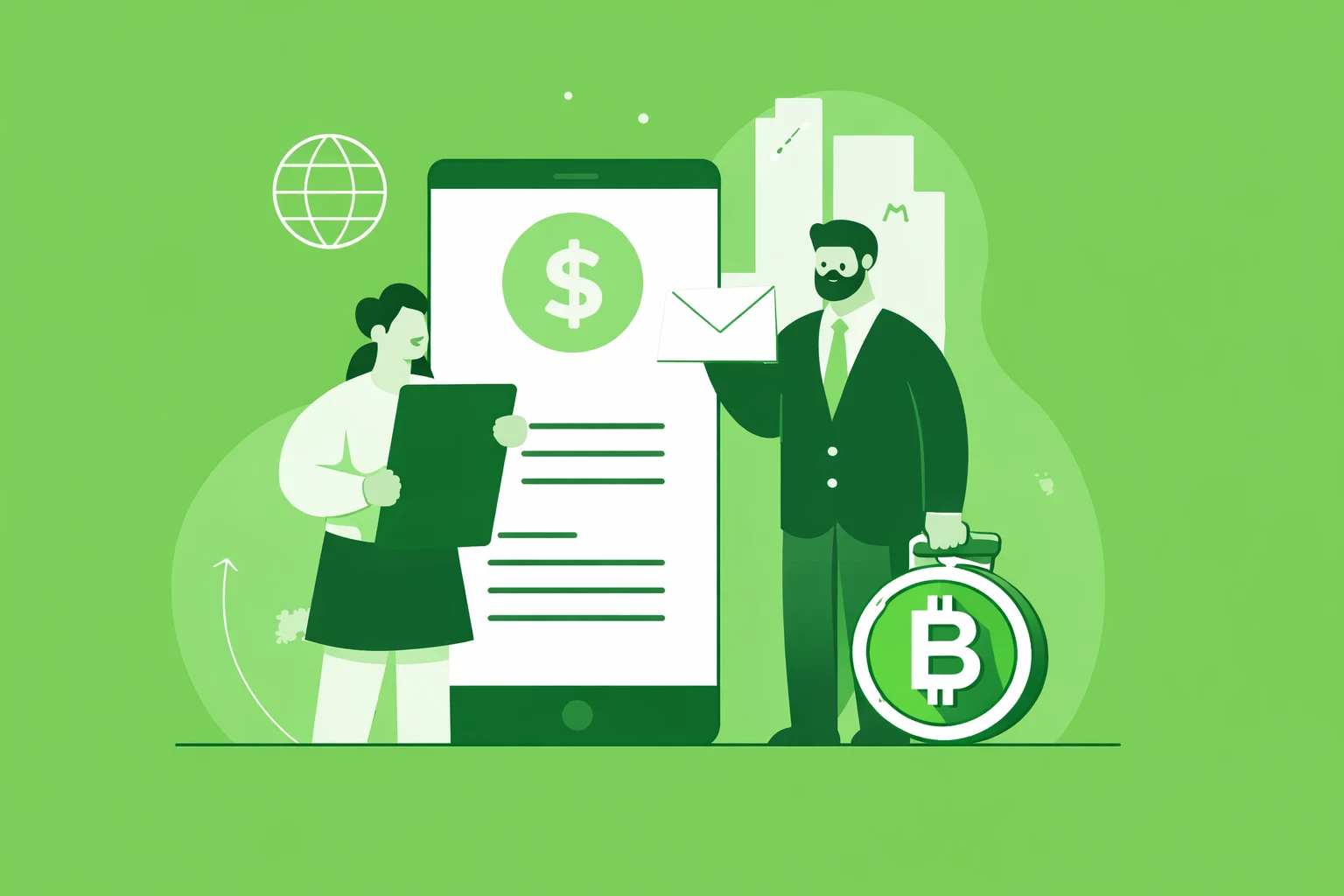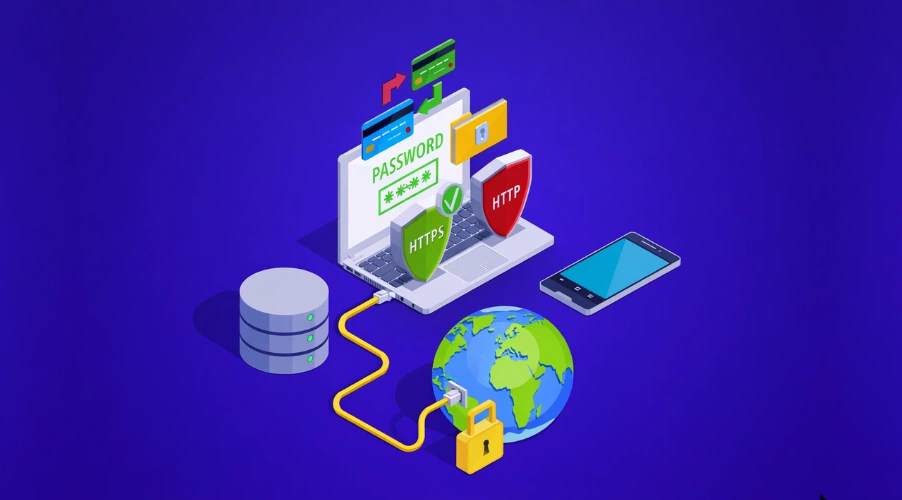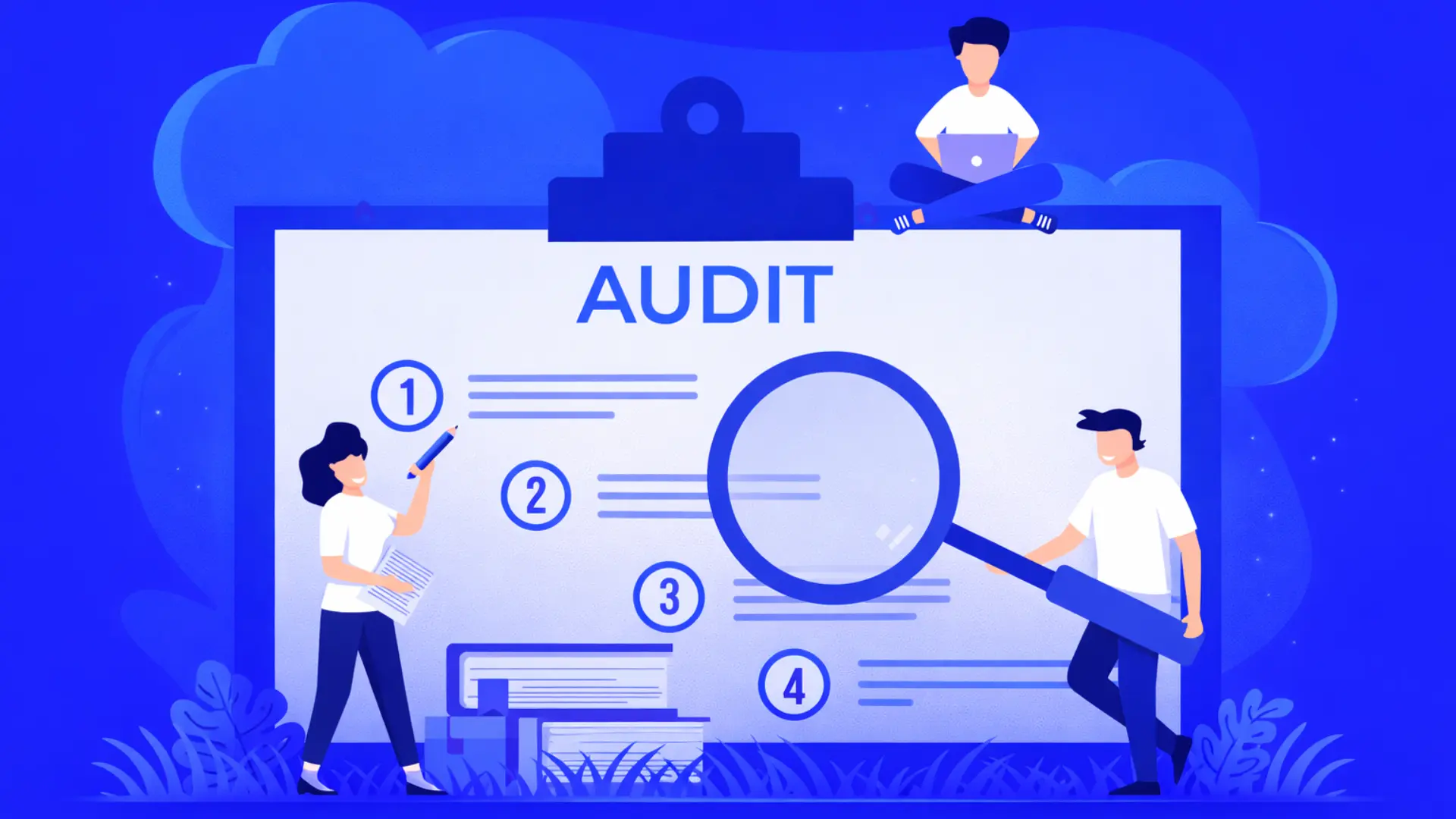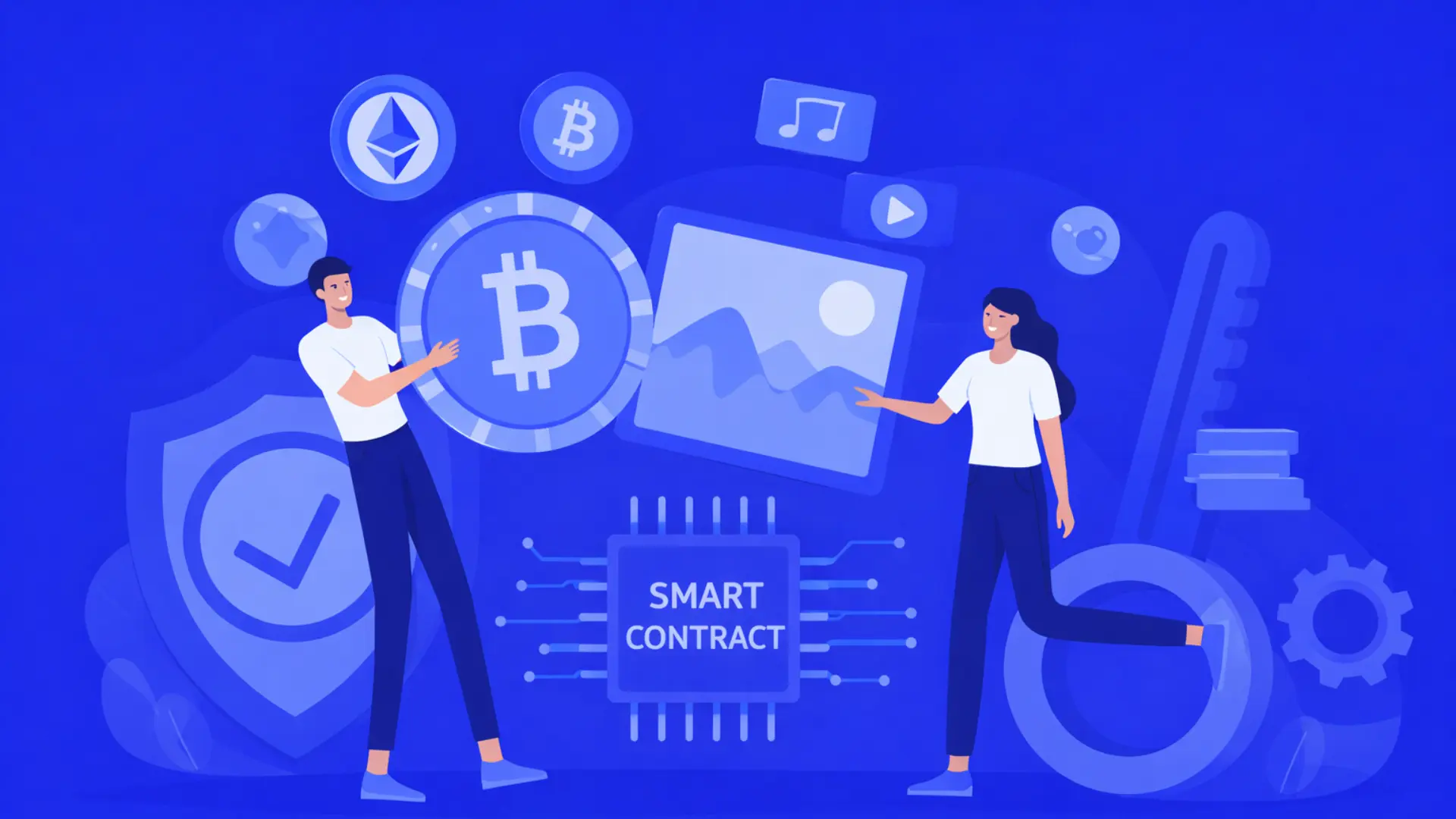Key Takeaways
- ✓ AI smart contracts combine artificial intelligence with blockchain automation, enabling self-learning, adaptive business agreements that optimize themselves over time.
- ✓ 2026 represents a critical inflection point as AI smart contracts mature technologically while regulatory frameworks provide clarity for business adoption.
- ✓ These intelligent contracts analyze data, predict outcomes, make autonomous decisions, and execute actions without human intervention, revolutionizing business efficiency.
- ✓ Early adopters of AI smart contracts gain significant competitive advantages through 40-60% cost reductions and 10x faster processing compared to traditional systems.
- ✓ Real-world applications span finance, supply chain, insurance, healthcare, and legal sectors with proven ROI and measurable business impact.
- ✓ Benefits include dramatic cost savings, enhanced accuracy, real-time adaptability, predictive capabilities, and elimination of intermediaries in business processes.
- ✓ Challenges exist around integration complexity, data quality requirements, and regulatory compliance, but proven solutions address each concern.
- ✓ Starting with AI smart contracts requires strategic planning, pilot projects, and partnerships with experienced blockchain AI developers for successful implementation.
What Are AI Smart Contracts?
AI smart contracts represent the next evolution of blockchain technology by combining artificial intelligence capabilities with traditional smart contract automation. While regular smart contracts execute predefined rules automatically, AI smart contracts can learn from data, adapt to changing conditions, make intelligent decisions, and optimize their own parameters over time without human intervention.
Think of AI smart contracts as having a brain added to blockchain’s automated muscles. Traditional smart contracts are like vending machines – you input A, you get output B every single time. AI smart contracts are more like skilled employees who learn from experience, understand context, predict future needs, and continuously improve their performance. This intelligence transformation makes them vastly more powerful for complex business applications.
The integration works by connecting machine learning models with blockchain smart contracts through oracles and off-chain computation. The AI component analyzes vast amounts of data, identifies patterns, makes predictions, and generates recommended actions. The smart contract component then executes these decisions transparently and immutably on the blockchain. Together, they create intelligent, autonomous systems that handle sophisticated business logic previously requiring human expertise.
Key Components of AI Smart Contracts
Machine Learning Models
AI algorithms that analyze data, recognize patterns, make predictions, and generate intelligent decisions based on training and real-time inputs.
Blockchain Execution Layer
Smart contract infrastructure that executes AI-generated decisions transparently, immutably, and automatically on distributed ledgers.
Oracle Networks
Data bridges that securely connect external information sources, APIs, and real-world data to blockchain-based AI systems.
Adaptive Logic
Self-optimizing parameters and rules that improve contract performance based on historical outcomes and changing conditions.
Expert Insight from Our 8+ Years:
We have been developing blockchain solutions since 2016 and began integrating AI capabilities into smart contracts in 2020. The transformation has been remarkable. Early AI smart contracts were experimental and limited. Today’s implementations handle millions of dollars in autonomous decisions daily. We have deployed AI smart contracts for clients that reduced operational costs by 55% while improving decision accuracy to 98%. The technology has matured from concept to production-ready business tool.
Why 2026 Is the Perfect Time for AI Smart Contracts
Several converging trends make 2026 the ideal year for businesses to invest in AI smart contracts. The technology has reached maturity, regulatory frameworks are crystallizing, infrastructure costs have dropped dramatically, and competitive pressures are mounting. Companies that adopt AI smart contracts now position themselves as industry leaders while late adopters risk falling behind irreversibly.
Technological maturity means AI smart contracts are no longer experimental. According to Coingeek blogs, Major enterprises across industries have successfully deployed production systems managing billions in assets. The tools, frameworks, and best practices exist for reliable implementation. Infrastructure providers offer robust platforms reducing deployment complexity and costs. Integration patterns with existing business systems are well-established and documented.
Regulatory clarity emerging in 2026 removes major adoption barriers. Governments worldwide are establishing frameworks specifically addressing AI and blockchain technologies. These regulations provide the legal certainty enterprises require before major investments. Early regulatory compliance gives businesses competitive advantages as standards solidify. The regulatory environment will only become more defined, making early adoption strategically valuable.
| Market Factor | 2023-2024 Status | 2026 Reality |
|---|---|---|
| Technology Maturity | Experimental, limited use cases | Production-ready, proven at scale |
| Infrastructure Costs | High, custom development required | 70% lower, platform solutions available |
| Regulatory Framework | Uncertain, fragmented globally | Clear guidelines, standardization emerging |
| Developer Talent | Scarce, expensive specialists | Growing pool, educational programs |
| Enterprise Adoption | Pilot projects, wait-and-see | Mainstream deployment, competitive necessity |
| ROI Timeline | 18-24 months to value | 6-12 months to positive returns |
Market Growth
AI smart contracts market projected to reach $12.8 billion by 2028, with 2026 marking the critical adoption curve inflection point.
Technology Convergence
AI capabilities, blockchain infrastructure, and enterprise integration tools have matured simultaneously, creating perfect conditions for deployment.
Competitive Window
Early adopters capture market share before competitors. By 2027, AI smart contracts become table stakes, eliminating competitive advantage.
How AI Smart Contracts Work
Understanding how AI smart contracts function helps businesses identify optimal use cases and implementation strategies. The technology operates through a sophisticated interplay between machine learning algorithms, blockchain execution layers, and real-world data sources. This integration creates intelligent automation that continuously improves while maintaining blockchain’s transparency and security guarantees.
The process begins with data collection from multiple sources including blockchain transactions, external APIs, IoT devices, and business systems. AI algorithms analyze this data to identify patterns, make predictions, and generate decisions. These AI-generated outputs are then verified through consensus mechanisms before being executed as blockchain transactions. The entire cycle repeats continuously, with the AI learning from outcomes to improve future decisions.
A practical example illustrates the workflow. In supply chain finance, AI smart contracts monitor shipment data from IoT sensors, analyze payment histories, assess risk scores, and predict delivery times. Based on this analysis, the contract automatically adjusts payment terms, releases funds when conditions are met, and flags anomalies for human review. All decisions are transparent on the blockchain while the AI continuously refines its risk models and predictions.
AI Smart Contract Execution Cycle
1. Data Collection
Gather information from blockchain, oracles, APIs, IoT devices, and integrated business systems in real-time.
2. AI Analysis
Machine learning models process data, identify patterns, predict outcomes, and generate intelligent recommendations.
3. Decision Making
AI algorithms evaluate options, calculate probabilities, and select optimal actions based on predefined objectives and constraints.
4. Blockchain Execution
Smart contract executes AI-generated decisions as transactions on blockchain, ensuring transparency and immutability.
5. Learning & Optimization
System analyzes outcomes, updates models, refines predictions, and improves decision accuracy for future cycles.
Why Businesses Should Start Investing Now
The business case for investing in AI smart contracts in 2026 is compelling across multiple dimensions. Early adopters capture first-mover advantages while technology costs remain accessible. Competitive pressures are mounting as industry leaders deploy these systems and raise performance benchmarks. Waiting risks falling behind competitors who are already transforming their operations with intelligent automation.
Financial returns from AI smart contracts investments prove substantial. Companies report 40-60% cost reductions in automated processes, 10x faster transaction processing, and 95% error reduction compared to manual operations. These efficiency gains translate directly to bottom-line improvements. Beyond cost savings, AI smart contracts enable new business models impossible with traditional systems, opening revenue opportunities previously unavailable.
Strategic positioning represents another critical factor. Businesses that master AI smart contracts now build institutional knowledge, develop competitive moats, and establish themselves as innovation leaders. This expertise becomes increasingly valuable as the technology becomes standard across industries. Companies that wait until adoption is universal lose the opportunity to differentiate and must play catch-up in crowded markets.
Compelling Reasons to Invest in AI Smart Contracts Today
- →
Massive Cost Reduction:
AI smart contracts eliminate intermediaries, automate manual processes, and optimize resource allocation, delivering 40-60% operational cost savings.
- →
Competitive Differentiation:
Early adoption establishes your business as an innovation leader while competitors struggle with legacy systems and manual processes.
- →
Enhanced Decision Quality:
AI analysis of vast data sets produces better decisions than human judgment alone, improving outcomes across all business functions.
- →
Scalability Without Proportional Costs:
AI smart contracts handle 10x transaction volume increases without proportional staffing or infrastructure cost growth.
- →
Risk Mitigation & Compliance:
Automated compliance checking, real-time fraud detection, and transparent audit trails reduce regulatory and operational risks significantly.
Real ROI Example from Our Clients:
In 2024, we implemented AI smart contracts for a mid-sized insurance company handling claims processing. The system reduced claims processing time from 14 days to 4 hours while cutting operational costs by $2.3 million annually. Fraud detection improved by 87%, and customer satisfaction scores increased 42% due to faster payouts. The entire system paid for itself in 7 months. This demonstrates the immediate, measurable business impact AI smart contracts deliver.
Real-World Business Use Cases
AI smart contracts are already transforming operations across diverse industries with proven, measurable results. Understanding real-world applications helps businesses identify opportunities within their own operations. These implementations demonstrate the technology’s versatility and substantial return on investment across different sectors and use cases.
The most successful deployments share common characteristics: they automate complex decision-making, process large data volumes, require rapid responses, and benefit from transparency. Industries with these attributes see dramatic improvements from AI smart contracts. Let’s explore specific use cases showing how businesses apply this technology to solve real problems and create competitive advantages.
| Industry | Use Case | AI Capability | Business Impact |
|---|---|---|---|
| Finance | Dynamic loan underwriting | Real-time risk assessment, fraud detection | 65% faster approval, 40% default reduction |
| Supply Chain | Predictive logistics optimization | Route optimization, demand forecasting | 30% cost savings, 95% on-time delivery |
| Insurance | Automated claims processing | Damage assessment, fraud detection | 90% faster payouts, 87% fraud reduction |
| Healthcare | Treatment protocol optimization | Outcome prediction, personalization | 25% better outcomes, 35% cost reduction |
| Real Estate | Dynamic pricing & rental management | Market analysis, tenant screening | 18% revenue increase, 60% admin reduction |
| Legal | Contract analysis & compliance | Clause extraction, risk identification | 75% faster review, 98% accuracy |
Trade Finance
AI smart contracts analyze shipping documents, verify compliance, assess counterparty risk, and automatically release payments when conditions are met. Reduces transaction time from weeks to hours while eliminating document fraud.
Supply Chain Finance
Monitors IoT sensor data, predicts delivery times, automatically adjusts payment terms based on performance, and optimizes inventory financing. Improves working capital efficiency by 35% while reducing defaults.
Clinical Trials
AI smart contracts manage patient consent, monitor safety parameters, trigger protocol adjustments based on interim results, and automate payments to participants. Accelerates trial completion by 40% while ensuring compliance.
Benefits of AI Smart Contracts for Businesses
The benefits of AI smart contracts extend far beyond simple automation, creating transformative improvements across every aspect of business operations. These advantages compound over time as systems learn and optimize, delivering increasing returns on investment. Understanding the full spectrum of benefits helps businesses prioritize implementation areas and measure success metrics.
Cost reduction represents the most immediate and measurable benefit, but strategic advantages like improved decision quality, enhanced scalability, and competitive positioning prove equally valuable long-term. AI smart contracts enable business models impossible with traditional systems while future-proofing organizations against rapid technological change. The combination of tactical and strategic benefits makes this investment compelling across industries and company sizes.
Dramatic Cost Savings
40-60% operational cost reduction through automation of manual processes, elimination of intermediaries, and optimization of resource allocation.
Reduced overhead, faster processing, fewer errors, and lower transaction fees deliver bottom-line improvements immediately.
Superior Decision Quality
AI analysis of vast data sets produces insights and decisions superior to human judgment alone, improving outcomes across all functions.
Pattern recognition, predictive analytics, and real-time adaptation enable optimal choices under complex conditions.
Unprecedented Speed
10x faster processing compared to traditional systems through instant analysis, automated execution, and elimination of manual approval steps.
Real-time responses, immediate transactions, and continuous operation 24/7 without delays transform business velocity.
Perfect Accuracy
95-99% error reduction through automated execution that follows programmed rules precisely every time without human mistakes.
Consistent quality, eliminated typos, no calculation errors, and perfect compliance create operational excellence.
Infinite Scalability
Handle 10x volume increases without proportional cost growth as AI smart contracts scale effortlessly to meet demand.
No capacity limits, instant resource allocation, and automated load balancing support explosive growth.
Complete Transparency
Blockchain immutability provides perfect audit trails, regulatory compliance documentation, and stakeholder visibility into all operations.
Build trust, simplify audits, prove compliance, and eliminate disputes through transparent operations.
Competitive Advantage in 2026
AI smart contracts create substantial competitive advantages that compound over time, separating market leaders from followers. Early adopters establish technological moats, operational efficiencies, and market positions difficult for late entrants to overcome. By 2026, the competitive landscape will clearly divide between AI-enhanced businesses and those relying on legacy systems.
The advantages manifest across multiple dimensions including cost structure, operational speed, decision quality, customer experience, and innovation capacity. Companies deploying AI smart contracts operate with fundamentally different economics than competitors, enabling aggressive pricing, superior service levels, and investment in further innovation. These compounding advantages create virtuous cycles where success breeds more success.
Market dynamics in 2026 will reward early movers disproportionately. As AI smart contracts become standard expectations, the technology shifts from differentiator to requirement for market participation. Companies adopting now capture the differentiation window before competitors catch up. Those waiting forfeit competitive advantages and face expensive catch-up efforts while operating at permanent cost and capability disadvantages.
Competitive Advantage Timeline
| Timeframe | Early Adopters (Now) | Late Adopters (2027+) |
|---|---|---|
| 2026 Q1-Q2 | Capture market share, establish expertise, build competitive moats | Still evaluating, losing ground, higher implementation costs |
| 2026 Q3-Q4 | Optimized systems, proven ROI, thought leadership positioning | Playing catch-up, paying premium costs, capability gaps evident |
| 2027 Onwards | Market dominance, continuous innovation, sustainable advantages | Permanent disadvantage, commodity player, margin pressure |
Competitive Reality Check:
In 2024, one of our financial services clients gained 12% market share in 8 months after deploying AI smart contracts for loan processing. Their 2-hour approval time versus competitors’ 5-day average created overwhelming customer preference. Competitors are now scrambling to implement similar systems but face 18+ month timelines. The early mover captured market position impossible for late followers to reclaim. This pattern will repeat across industries in 2026.
Challenges to Consider
While AI smart contracts offer tremendous benefits, businesses must understand and address real implementation challenges. Acknowledging these obstacles upfront enables proper planning, realistic timelines, and successful deployments. Most challenges have well-established solutions, but ignoring them leads to project failures and wasted investments.
The primary challenges fall into technical, organizational, and regulatory categories. Technical issues include integration complexity with legacy systems, data quality requirements for AI training, and ensuring security across AI and blockchain components. Organizational challenges involve change management, skill development, and process redesign. Regulatory concerns center on compliance with evolving frameworks and liability for autonomous decisions.
Key Challenges and Proven Solutions
Integration Complexity
Challenge: Connecting AI smart contracts with existing enterprise systems, databases, and workflows requires significant technical effort.
Solution: Use middleware platforms, API gateways, and incremental integration approaches. Start with standalone processes before deeper system integration.
Data Quality Requirements
Challenge: AI models require large volumes of high-quality, properly formatted data for training and accurate predictions.
Solution: Implement data governance frameworks, cleansing processes, and synthetic data generation for training. Partner with data providers if internal data insufficient.
Skill Gaps
Challenge: Teams lack expertise in both AI development and blockchain technology, requiring new skills for implementation and maintenance.
Solution: Partner with experienced AI smart contracts developers initially while training internal teams. Use managed platforms reducing technical complexity.
Regulatory Uncertainty
Challenge: Evolving regulations around AI decision-making and blockchain create compliance concerns and liability questions.
Solution: Work with legal experts, implement human oversight for critical decisions, maintain comprehensive audit trails, and join industry standards bodies.
How to Start Using AI Smart Contracts
Starting your AI smart contracts journey requires strategic planning and systematic execution. The path to successful implementation follows proven patterns that balance ambition with pragmatism. Beginning with well-scoped pilot projects, learning from results, and scaling successful implementations creates sustainable adoption while managing risks.
The recommended approach starts with education and assessment, moves through pilot implementation, and culminates in production deployment and optimization. This phased methodology allows businesses to build expertise progressively, demonstrate value to stakeholders, and refine strategies based on real-world results before major commitments.
Step-by-Step Implementation Roadmap
Phase 1: Education & Assessment (2-4 weeks)
- • Educate leadership on AI smart contracts capabilities and benefits
- • Identify high-value use cases within your organization
- • Assess current systems, data readiness, and skill gaps
- • Define success metrics and ROI expectations
Phase 2: Pilot Project (3-6 months)
- • Select focused use case with clear business value
- • Partner with experienced AI smart contracts developers
- • Develop minimum viable product with core functionality
- • Test with real users and measure against success metrics
Phase 3: Production Deployment (4-8 months)
- • Refine pilot based on learnings and feedback
- • Implement security hardening and compliance requirements
- • Deploy to production with monitoring and support
- • Train users and provide comprehensive documentation
Phase 4: Scale & Optimize (Ongoing)
- • Expand to additional use cases and departments
- • Continuously optimize AI models and contract logic
- • Build internal expertise and capabilities
- • Measure and communicate business impact to stakeholders
The Future of AI Smart Contracts
The future of AI smart contracts points toward increasingly sophisticated, autonomous business systems that handle complex operations with minimal human intervention. Advances in AI capabilities, blockchain scalability, and integration frameworks will expand use cases while reducing implementation barriers. By 2030, AI smart contracts will likely power the majority of automated business processes across industries.
Emerging trends include multi-agent AI systems where autonomous contracts negotiate with each other, quantum-resistant security for long-term asset protection, and seamless real-world integration through IoT and edge computing. These developments will transform AI smart contracts from tools for specific tasks into comprehensive business operating systems managing entire value chains autonomously.
Businesses investing in AI smart contracts today position themselves to leverage these future capabilities while competitors struggle with basics. The learning curve, institutional knowledge, and operational experience gained now become invaluable as technology evolves. Organizations that master current implementations will naturally transition to next-generation systems, maintaining competitive advantages through continuous innovation.
Ready to Transform Your Business with AI Smart Contracts?
Partner with blockchain AI experts who have 8+ years of experience developing intelligent automation solutions that deliver measurable business results.
Discover how AI smart contracts can transform your business operations in 2026
Frequently Asked Questions
AI smart contracts are smart contracts that use artificial intelligence to make better decisions. Normal smart contracts only follow fixed rules. AI smart contracts can learn from data, predict outcomes, and adjust actions automatically. They work on blockchain but act smarter by analyzing information before executing tasks.
Traditional smart contracts run exactly as coded and never change. AI smart contracts can learn from past data and improve over time. They can analyze situations, predict risks, and choose the best action. This makes them suitable for complex business processes where conditions change frequently.
Yes, AI smart contracts are safe when developed and audited properly. Blockchain ensures transparency and security, while AI improves decision-making. Businesses must use secure data sources, trusted oracles, and regular audits. With proper controls, AI smart contracts reduce errors, fraud, and manual risks.
AI smart contracts are useful in finance, supply chain, insurance, healthcare, real estate, and legal industries. Any business that needs automation, data-based decisions, and trust can benefit. They help manage payments, contracts, approvals, and compliance without human delays or middlemen.
In 2026, AI and blockchain technologies are mature, affordable, and widely supported. Regulations are clearer, tools are easier to use, and skilled developers are available. Businesses adopting now gain early advantages, lower costs, faster processes, and better decision-making before competitors fully catch up.
Yes, AI smart contracts reduce costs by automating manual work, removing intermediaries, and preventing errors. Businesses report 40–60% cost savings in operations like payments, approvals, and compliance. Faster processing and fewer mistakes directly improve profitability and efficiency across departments.
The main challenges include system integration, data quality, skill gaps, and regulatory compliance. AI needs clean data, and blockchain requires technical expertise. These challenges are manageable by starting small, using expert partners, and applying proper security, testing, and governance frameworks.
Businesses should start by identifying one clear use case, such as payments or approvals. Then build a small pilot project with experienced developers. After testing results, they can scale gradually. This step-by-step approach reduces risk and helps teams learn before full deployment.
Reviewed & Edited By

Aman Vaths
Founder of Nadcab Labs
Aman Vaths is the Founder & CTO of Nadcab Labs, a global digital engineering company delivering enterprise-grade solutions across AI, Web3, Blockchain, Big Data, Cloud, Cybersecurity, and Modern Application Development. With deep technical leadership and product innovation experience, Aman has positioned Nadcab Labs as one of the most advanced engineering companies driving the next era of intelligent, secure, and scalable software systems. Under his leadership, Nadcab Labs has built 2,000+ global projects across sectors including fintech, banking, healthcare, real estate, logistics, gaming, manufacturing, and next-generation DePIN networks. Aman’s strength lies in architecting high-performance systems, end-to-end platform engineering, and designing enterprise solutions that operate at global scale.







